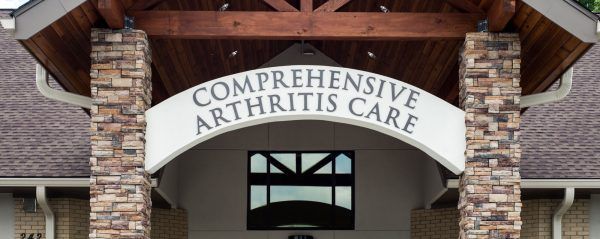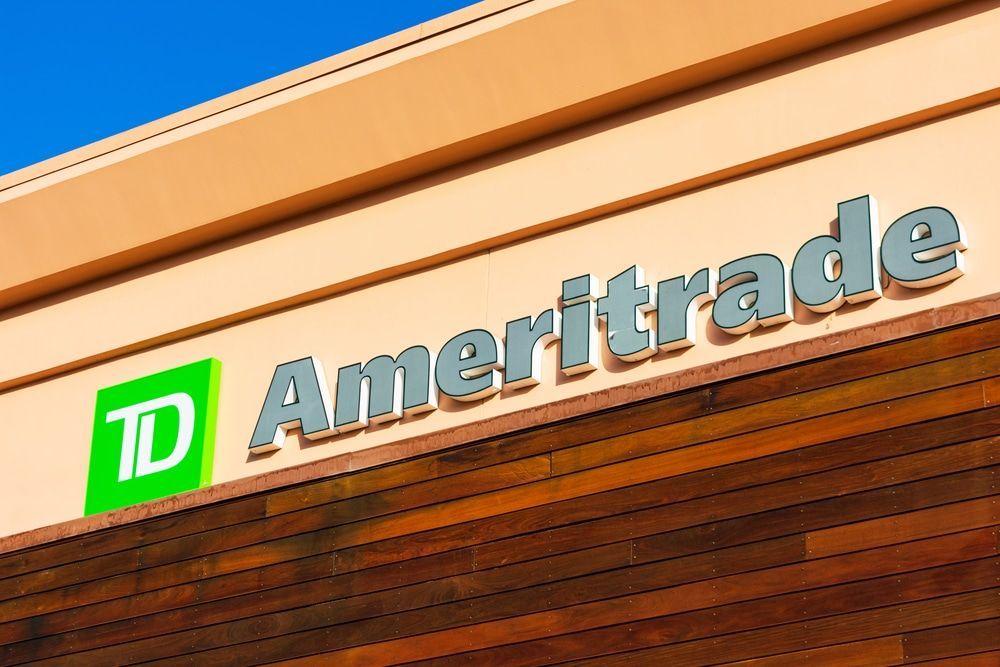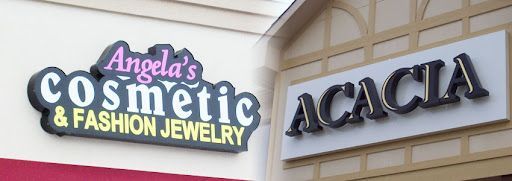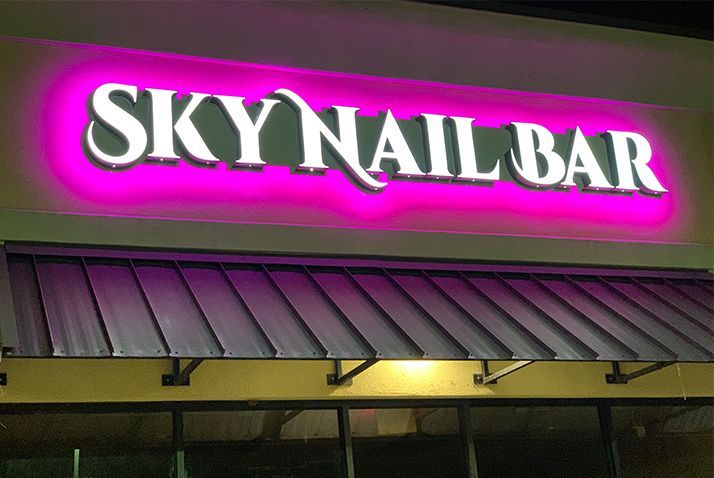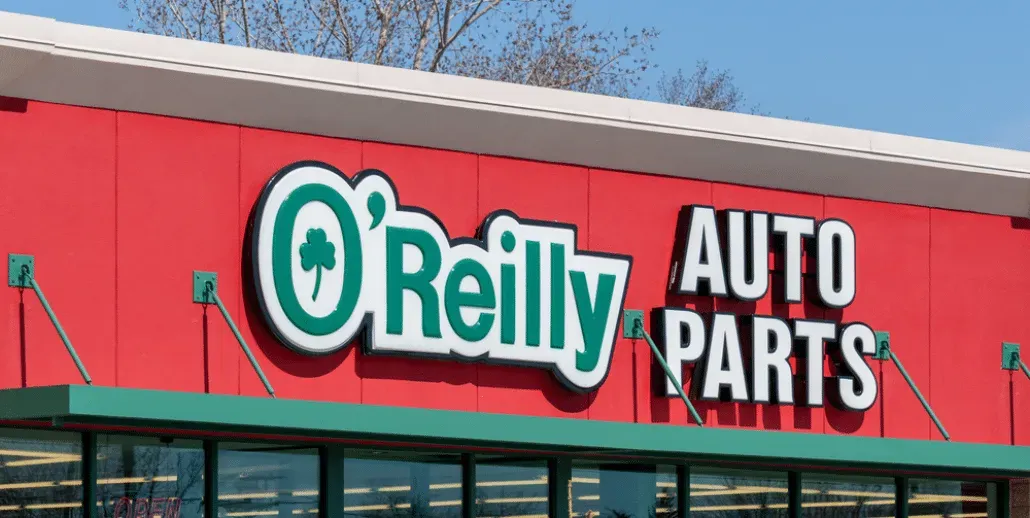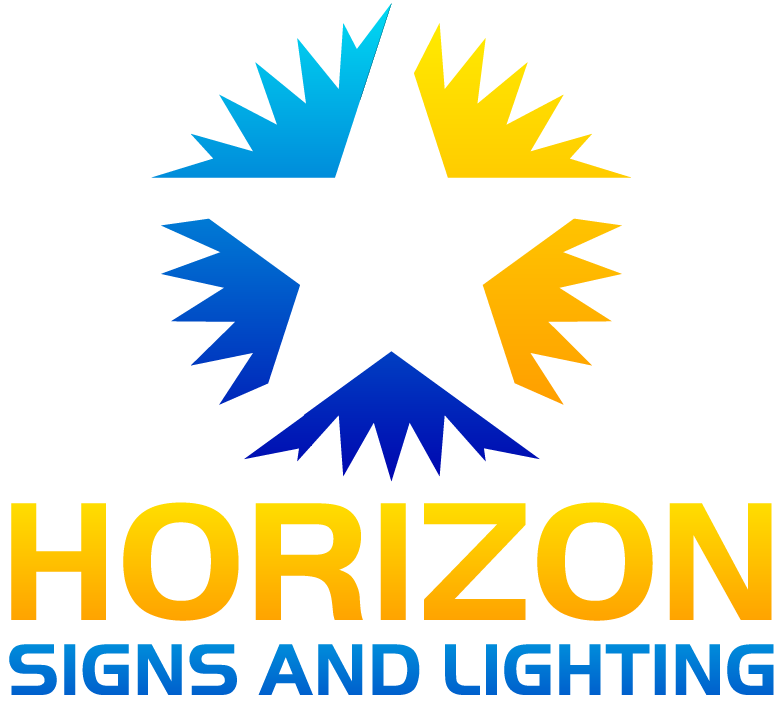The 7 Most Popular Commercial Sign Types (And When to Use Each One)
TLDR;
The seven most popular commercial sign types are channel letters, monument signs, pylon signs, blade signs, window graphics, digital/LED signs, and temporary signage like banners. Each type serves a unique purpose—ranging from increasing visibility to boosting brand identity—and their use depends on location, audience, regulatory context, and budget.
Horizon Sign & Lighting helps businesses choose the right sign that fits their goals, meets Texas codes, and delivers long-term ROI.
Why Choosing the Right Commercial Sign Matters in Texas
In Texas, commercial signage isn’t just about being seen—it’s about being strategic. With strict municipal codes, wide highways, diverse business zones, and competitive storefronts, picking the right type of sign can determine how effectively your business attracts attention, communicates value, and complies with local laws.
At Horizon Sign & Lighting, we specialize in guiding business owners through smart sign selection—from high-impact visibility to cost efficiency and permit compliance. Below is a comprehensive breakdown of the 7 most popular sign types and when each makes the most sense.
Understanding Sign Categories: Interior, Exterior, Digital, Temporary
Before we dive into the sign types, it helps to understand how signs are categorized:
- Exterior Signs: Positioned outside to attract customers and direct traffic
- Interior Signs: Used inside buildings for navigation, branding, or information
- Digital Signs: Feature programmable content via LED or LCD
- Temporary Signs: Used for events, promos, or short-term messages
Your business may need a combination of these to maximize visibility and communication.
1. Channel Letter Signs (Face-Lit & Halo-Lit)
What they are
Three-dimensional letters, often internally illuminated. They can be face-lit, halo-lit (reverse), or combination-lit.
Best used for
- Storefront branding
- Businesses that operate at night (restaurants, gyms, retail)
- Shopping plazas and strip malls
Benefits
- 24/7 visibility
- Highly customizable in font, size, color, and lighting
- Sleek, professional appearance
Texas Considerations
- Permits usually required, especially for lighting and size
- TxDOT and city zoning may limit dimensions and proximity to roads
Typical Materials
Aluminum returns, acrylic faces,
LED lighting
Lifespan
5–15 years with proper maintenance
2. Monument Signs
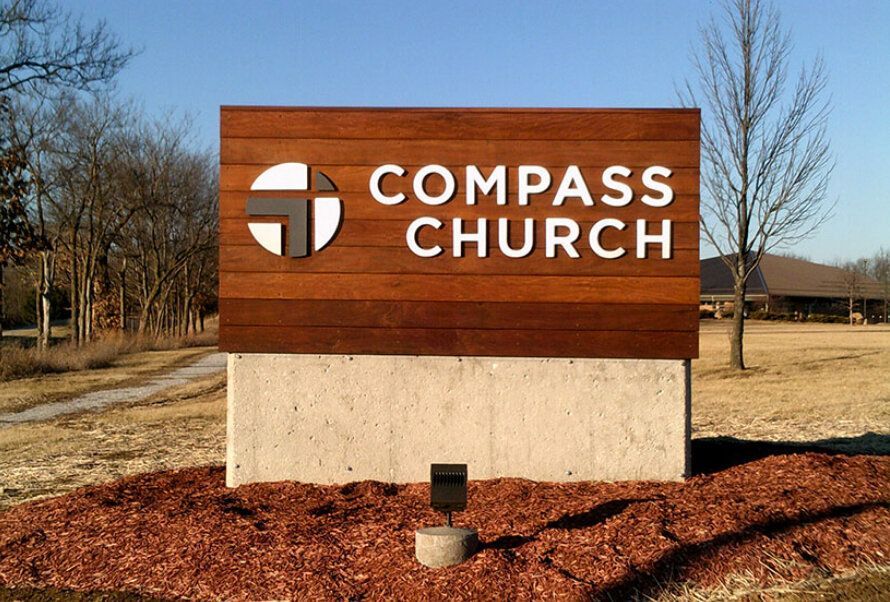
What they are
Freestanding, low-to-the-ground signs often made from masonry, concrete, metal, or HDU foam.
Best used for
- Corporate campuses
- Medical parks
- Churches and schools
- Properties with deep setbacks
Benefits
- Durable and weather-resistant
- Matches building architecture for cohesive branding
- Great for permanent business locations
Texas Considerations
- Local city codes vary significantly
- Height and materials often regulated by municipality
- Some cities require engineered drawings for foundation
Lifespan
10–20+ years
3. Pylon Signs (aka Pole Signs)
What they are
Tall, freestanding signs mounted on poles, often rising above buildings or tree lines.
Best used for
- Roadside businesses
- Gas stations
- Shopping centers and strip malls
- Highway visibility
Benefits
- Maximum long-distance visibility
- Can include multiple tenants (great for plazas)
Texas Considerations
- TxDOT has spacing and height restrictions near highways
- Cities like Houston or Dallas may require spacing permits
- Wind-load engineering often required
Lifespan
10–15 years
4. Blade Signs (aka Hanging or Projecting Signs)
What they are
Signs that protrude perpendicular to a building facade, often above sidewalks or pedestrian walkways.
Best used for
- Downtown retail stores
- Restaurants and boutiques
- Walkable areas with heavy foot traffic
Benefits
- Increases visibility in tight urban settings
- Adds vintage or artisan appeal
- Highly visible from side angles
Texas Considerations
- Cities like Austin and San Antonio have specific sidewalk clearance rules
- Historic districts may require design approval
Lifespan
5–10 years, depending on exposure
5. Window Graphics & Wall Murals
What they are
Vinyl decals or printed graphics applied directly to storefront windows or walls.
Best used for
- Temporary promotions
- Product announcements
- Full-wall branding or decorative murals
Benefits
- Low cost and quick installation
- Easily removed or updated
- No structural changes needed
Texas Considerations
- May require approval in historic districts (like Fort Worth Stockyards)
- Some cities regulate how much window space can be covered
Lifespan
1–3 years for short-term vinyl; 5+ for UV-protected materials
6. Digital & LED Signs
What they are
Electronic message centers (EMCs) or full LED/LCD displays showing changing messages, videos, or graphics.
Best used for
- Gas prices
- Event venues
- Schools and churches
- Auto dealerships and retail chains
Benefits
- Dynamic messaging
- Eye-catching animations
- Schedule content by time/day/season
Texas Considerations
- Brightness capped by state and city laws
- Moving text or animation restrictions in some areas
- Permits and electric connection must meet code
Lifespan
7–12 years with proper maintenance
7. Temporary Signs: Banners, A-Frames & Sandwich Boards
What they are
Portable signs made of vinyl, coroplast, or metal frames. Examples include banners, A-frame signs, and sidewalk boards.
Best used for
- Grand openings
- Events and sales
- Seasonal specials
- Construction zones
Benefits
- Low cost
- Easy to move and install
- No electrical needs
Texas Considerations
- Limited use periods (often 30–90 days)
- Cities may restrict placement on sidewalks or public right-of-way
Lifespan
3 months to 1 year depending on material and weather
At-a-Glance: Sign Type Comparison
| Sign Type | Best For | Permit Required | Visibility Level |
|---|---|---|---|
| Channel Letters | Storefronts, night visibility | Yes | High |
| Monument | Suburban campuses | Yes | Medium-High |
| Pylon/Pole | Highways, plazas | Yes | Maximum |
| Blade | Walkable downtowns | Sometimes | Medium |
| Window Graphics | Promotions, branding | Sometimes | Medium |
| Digital Signs | Events, programmable content | Yes | Very High |
| Banners/A-Frames | Temporary sales or events | Usually No | Medium |
Sign Permits and Texas Regulations: What to Know
In Texas, commercial signage is heavily regulated at both the state and city level.
- TxDOT: Controls signage near highways; spacing, height, and digital sign brightness are regulated
- Cities: Houston, Dallas, Austin, and others each have sign ordinances governing size, location, and materials
- Historic Zones: Special permissions needed for altering façade or adding new signage
Permits typically require:
- Design renderings
- Engineering certifications
- Zoning department approval
- Sign contractor license (Horizon Sign & Lighting is registered and code-compliant)
Long-Term Maintenance and Upkeep
Even the best-designed sign needs care to maintain impact.
- Channel Letters: LED replacements every 5–7 years
- Monument Signs: Occasional cleaning and repainting
- Digital Signs: Firmware updates and calibration
- Window Graphics: Replace as promotions change
- Banners: Store properly to avoid wear when not in use
For aging signage, Horizon Sign & Lighting offers
professional sign repair services to restore performance, extend lifespan, and ensure continued compliance with local codes. Regular inspections and timely repairs help businesses avoid costly replacements and preserve their brand image.
Planning Your Sign Strategy with Horizon Sign & Lighting
Choosing the right sign isn’t just about looks—it’s about function, compliance, and long-term value. Horizon Sign & Lighting helps businesses across Texas assess:
- Property layout and traffic patterns
- Municipal codes and restrictions
- Lighting needs and operating hours
- Brand identity and promotional goals
Whether you need a single storefront sign or a multi-location rollout, we guide you through design, permitting, fabrication, and installation.
